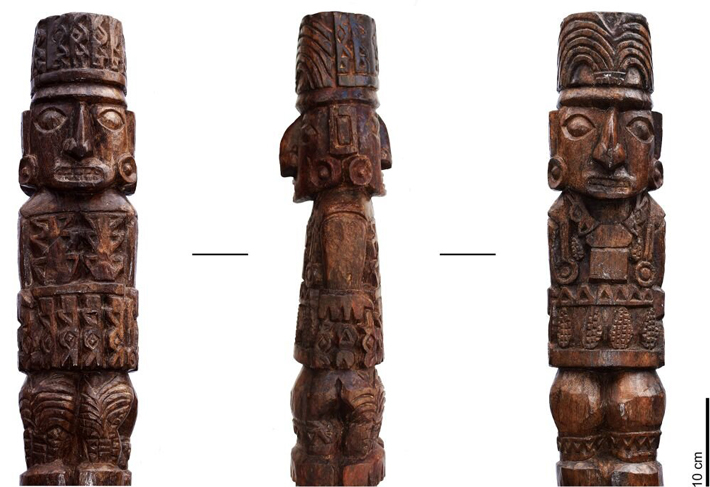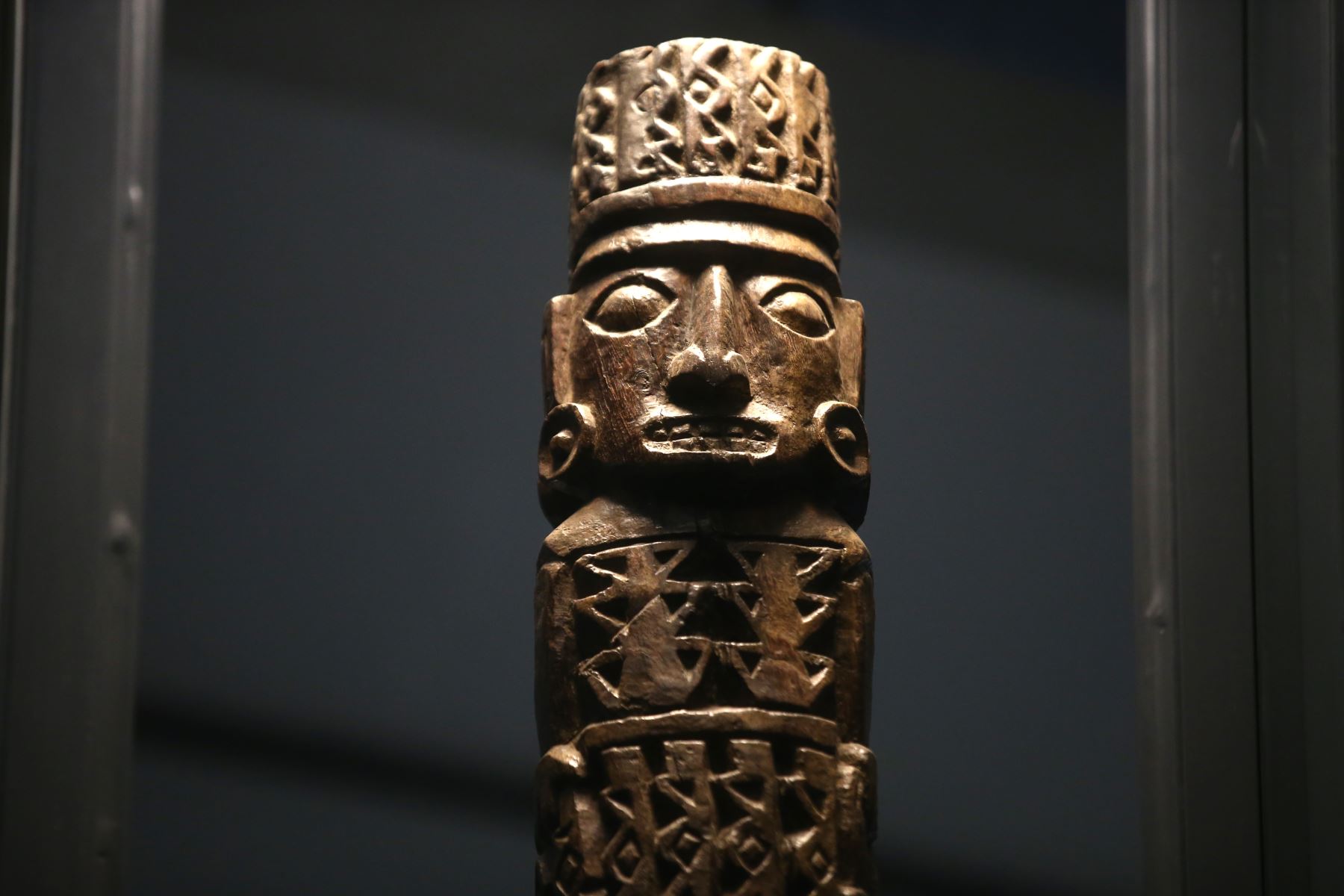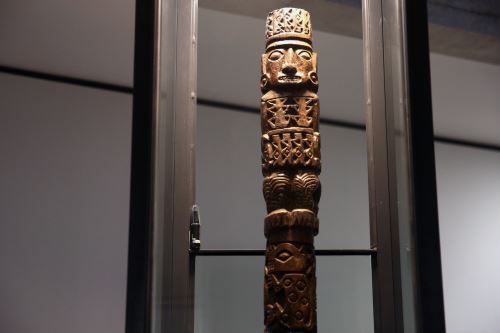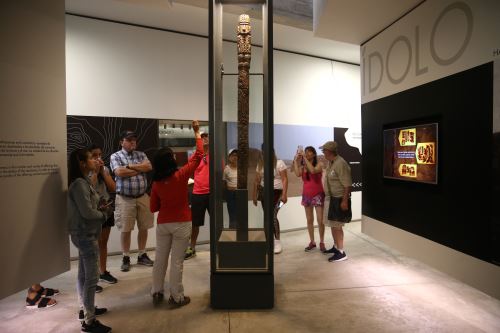Peru's Pachacamac Idol Analyzed
Friday, January 17, 2020

(Sepúlveda et al. 2020, PLOS ONE)PARIS, FRANCE—Live Science reports that researchers led by Marcela Sepúlveda of Sorbonne University examined the seven- and one-half-foot-tall wooden statue known as the Pachacamac idol, which was unearthed in 1938 within the Painted Temple at Pachacamac, an Inca sanctuary located near the coastline of central Peru. In 1533, Spanish conquistador Hernando Pizarro ordered that the revered idol at Pachacamac be destroyed, and so researchers did not know if the statue unearthed within the temple was the sacred object or another artifact. Sepúlveda and her colleagues radiocarbon dated the statue to sometime between A.D. 760 and 876, which suggests that it was made by the Wari people and that the oracle site was important hundreds of years before the rise of the Inca Empire. Analysis of the statue's surface with X-ray fluorescence spectrometry revealed traces of color, Sepúlveda added. Its teeth were once painted white, and parts of its headdress were decorated with yellow pigment. Cinnabar, a red pigment that is found in the Andes Mountains some 250 miles away, was also detected. The red color may have been a symbol of economic might and political power, Sepúlveda explained. For more on recent finds in Peru, go to "Peruvian Mass Sacrifice," one of ARCHAEOLOGY's Top 10 Discoveries of 2019.
https://www.archaeology.org/news/8360-200117-peru-pachacamac-idol
~ ~ ~
Peru: Study reveals Pachacamac idol belongs to Wari period

A recent study reveals that the Pachacamac idol —one of the main attractions at Pachacamac Sanctuary and its on-site museum— belongs to Wari period.

Its risky discovery in the decade of 1930 —after centuries of being considered lost— resulted in debates among experts, which are still ongoing.
For instance, given its iconography, some specialists believe it belongs to the Wari culture, but many others doubt it.

Now, the joint work between Peruvian institutions and Paris-Sorbonne University has shown that the carved wood belongs to Wari's apogee stage. Carbon-14 dating indicated that it was from sometime between 760 and 876 A.D.
Denise Pozzi-Escot, director of the Pachacamac on-site museum, told Andina news agency that the Wari occupation is confirmed by other recent studies. For example, the ceramics of this culture found in Ayacucho region.
More:
https://andina.pe/ingles/noticia-peru-study-reveals-pachacamac-idol-belongs-to-wari-period-781588.aspx



